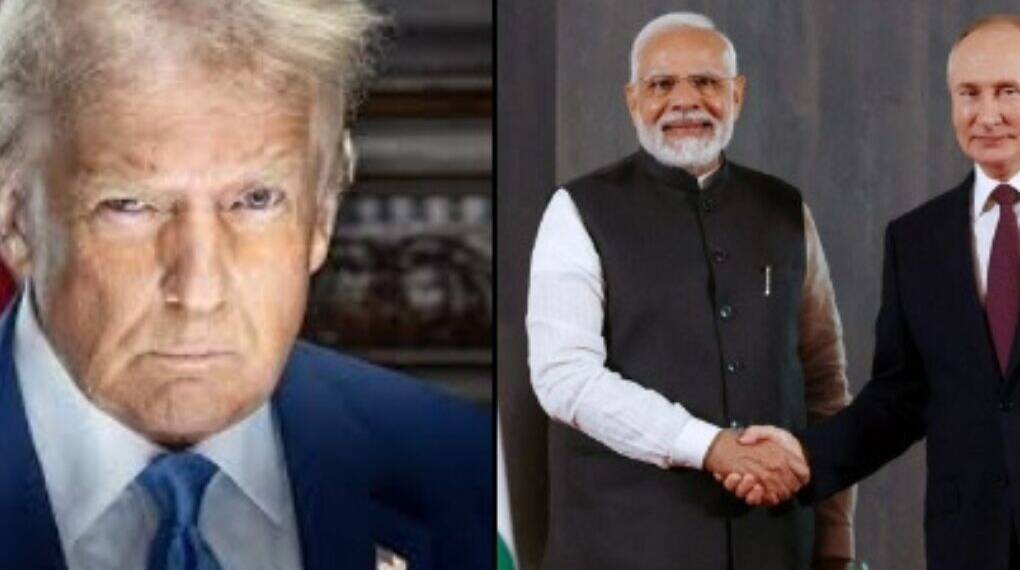In a firm rebuttal to remarks made by U.S. President Donald Trump, the Indian Ministry of External Affairs (MEA) on Thursday dismissed claims that Prime Minister Narendra Modi had assured Washington of halting India’s purchase of Russian oil. The clarification came hours after Trump publicly asserted that Modi had personally informed him of India’s decision to reduce Russian crude imports — a claim that India categorically denied.
Trump’s Controversial Statement
During a campaign rally in Florida on Wednesday, President Trump said, “I spoke with Prime Minister Modi yesterday. He told me India will be stopping the purchase of Russian oil. We’re getting great cooperation from India.” The statement immediately stirred international attention, coming at a time when global energy markets remain volatile and India’s energy policies are under scrutiny from Western capitals.
Trump’s remarks were seen as an attempt to project diplomatic leverage and influence over major global partners, particularly as Washington continues to pressure nations to limit economic engagement with Moscow amid the ongoing Russia-Ukraine conflict.
India’s Swift Response
However, India wasted no time in setting the record straight. Addressing the media in New Delhi, MEA spokesperson Randhir Jaiswal clarified:
“As per my information, there was no telephonic conversation between Prime Minister Modi and U.S. President Trump yesterday.”
He further emphasized that India’s energy procurement is guided solely by national interests and the need to ensure stability for Indian consumers amid fluctuating oil prices.
India’s import policies are determined by the energy security and affordability needs of our people. We maintain an independent approach to global energy markets,” Jaiswal added.
India’s Consistent Energy Policy
India has repeatedly defended its right to purchase crude oil from diverse sources, including Russia. Since the start of the Ukraine war, India has significantly increased its imports of discounted Russian crude, arguing that it serves domestic economic stability and keeps inflation in check.
While the West has imposed sanctions and attempted to isolate Moscow economically, New Delhi has maintained a balanced stance — condemning civilian casualties in the conflict while abstaining from outright condemnation of Russia. Indian officials have often reiterated that the country’s oil imports are part of a pragmatic policy of “energy diversification.”
A senior government official, speaking on background, stated, “India will continue to buy oil from wherever it gets the best deal. Our objective is to ensure the welfare of Indian consumers and energy security for our economy.”
Geopolitical Context: Balancing Between East and West
The latest diplomatic episode underscores the complex tightrope India walks in its foreign policy. On one hand, New Delhi shares strategic ties with Washington through platforms like the QUAD alliance. On the other hand, India maintains a longstanding defense and energy partnership with Moscow.
Trump’s claim, whether intentional or a political exaggeration, risks complicating this delicate balance. Analysts believe it may be part of the former president’s broader effort to project global influence ahead of the 2026 U.S. elections — especially as he faces criticism for his transactional approach to diplomacy.
Expert Reactions
International observers have largely viewed India’s response as an assertion of sovereignty.
Energy analyst Vandana Hari noted, “India has consistently avoided taking sides in geopolitical conflicts when it comes to energy policy. The MEA’s prompt rebuttal signals that New Delhi will not allow any misrepresentation of its independent stance.”
Former diplomat Navtej Sarna also remarked that such statements by foreign leaders often stem from political showmanship. “Trump is known for making off-the-cuff remarks. But India’s swift clarification is important to prevent any diplomatic misunderstandings,” he said.
With the MEA’s categorical denial, India has once again underlined its independent foreign policy and economic sovereignty. As global energy politics continue to evolve — from OPEC decisions to sanctions on Russian exports — India remains focused on securing affordable energy for its 1.4 billion citizens.
The latest episode not only highlights India’s assertiveness on the world stage but also reaffirms its message: New Delhi’s decisions are made in New Delhi, not Washington.








